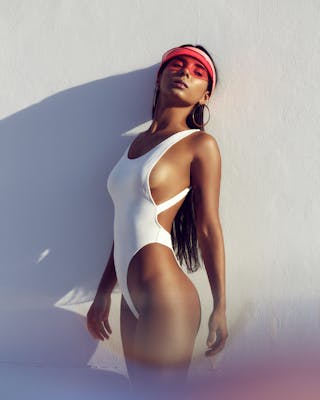Wonder Woman Poster Has Fans Thinking She's Gay Or Bisexual
Rumors are swirling around the latest Wonder Woman poster, and fans can't stop speculating about the iconic superhero's true identity. The internet is buzzing with theories and discussions about Wonder Woman's possible LGBTQ+ status, and everyone is eagerly awaiting official confirmation. Whether you're a die-hard fan or just curious about the latest superhero gossip, there's no denying the excitement surrounding this hot topic. And speaking of love and excitement, if you're looking for gay dating opportunities in Dallas, look no further than this site to find your perfect match.
The recent release of a new Wonder Woman poster has sparked a debate among fans about the superhero's sexual orientation. The poster, which features Wonder Woman standing confidently with her iconic lasso, has led many to speculate about her romantic preferences. Some fans believe that the poster hints at Wonder Woman being gay or bisexual, while others argue that it's simply a representation of her strength and independence.
The debate has ignited discussions on social media platforms and fan forums, with many expressing their opinions on the matter. Some have praised the idea of Wonder Woman being depicted as a member of the LGBTQ+ community, while others have criticized the speculation as unnecessary and irrelevant to the character's story.
If you're into foot fetish, you should definitely try out these dating sites to find like-minded individuals.
The Representation of LGBTQ+ Characters in Superhero Films
Explore Pittsburgh's Kinky Side and Spice Up Your Love Life
The representation of LGBTQ+ characters in superhero films has been a topic of discussion for many years. While there have been some strides towards inclusivity in recent years, with characters like Deadpool and Valkyrie being portrayed as LGBTQ+, there is still a long way to go in terms of representation and diversity in superhero narratives.
The discussion surrounding Wonder Woman's sexual orientation highlights the importance of inclusivity in the superhero genre. Many fans have expressed the desire to see more diverse and authentic representations of LGBTQ+ characters in mainstream media, including superhero films.
Wonder Woman's Legacy and Impact
Wonder Woman has long been considered a feminist icon and a symbol of female empowerment. The character, created in 1941 by William Moulton Marston, has inspired generations of fans with her strength, resilience, and compassion. Her impact on popular culture and the superhero genre cannot be overstated, and she continues to be a source of inspiration for people of all ages and backgrounds.
The discussion of Wonder Woman's sexual orientation adds another layer to her legacy, sparking conversations about LGBTQ+ representation and visibility in mainstream media. Many fans have expressed the hope that Wonder Woman's story will continue to evolve and reflect the diversity of the real world.
The Importance of Authentic Representation
The debate about Wonder Woman's sexual orientation brings attention to the importance of authentic representation in media. LGBTQ+ individuals deserve to see themselves reflected in the stories and characters they love, and the superhero genre should be no exception.
While some fans may argue that Wonder Woman's sexual orientation is irrelevant to her character, others believe that it is an important aspect of her identity that should be explored and celebrated. The inclusion of LGBTQ+ characters in mainstream media not only provides representation for marginalized communities but also helps to challenge stereotypes and promote acceptance and understanding.
Moving Forward
As the debate about Wonder Woman's sexual orientation continues, it is important for fans and creators alike to consider the impact of representation in media. While the character's sexual orientation has not been explicitly addressed in the films, the discussion surrounding the new poster has sparked important conversations about inclusivity and diversity in the superhero genre.
Whether or not Wonder Woman is depicted as gay or bisexual in future films, the discussion has shed light on the need for authentic representation of LGBTQ+ characters in mainstream media. As fans continue to share their opinions and engage in dialogue about the topic, it is important to remember the significance of inclusivity and the impact it can have on audiences of all backgrounds.
- https://hookupsites.campsupernow.com/posts/relationship-advice-and-dating-tips/
- https://local-personals.getweps.com/posts/star-sign-sex-toy-recommendations-which-sex-toy-will-drive-you-wild-according-to-the-zodiac/
- https://singles.thehottieandthenottie.com/posts/my-best-sex-ever-was-with-a-model/
- https://dating-blog.campsupernow.com/posts/shower-sex-sex-in-shower-tips-so-you-dont-hurt-yourself/
- https://chat.getweps.com/posts/sex-games-ideas-22-adult-sex-games-to-play-in-a-couple-or-party/
- https://find-singles.timebombrecordings.com/posts/sex-for-the-story-tiktoks-wildest-stars-reveal-all/
- https://online-personals.getweps.com/posts/how-to-use-bullet-sex-toys/
- https://singles-website.timebombrecordings.com/posts/how-to-get-a-date-and-meet-people-on-dating-apps/
- https://sex-chat.getweps.com/posts/antiracist-dating-how-to-be-anti-racist-on-dates/
- https://hookup.themountaintopplay.com/posts/3-crucial-sex-lessons/
- https://dating.timebombrecordings.com/posts/skirt-club-the-uks-first-sex-club-for-bicurious-women/
- https://online-sex.themountaintopplay.com/posts/compulsory-heterosexuality-what-is-comphet/
- https://hookup-website.ua-sex.com/posts/my-best-sex-ever-was-with-my-friends-fiance/
- https://dating-blog.ua-sex.com/posts/my-best-sex-ever-was-on-paypal/
